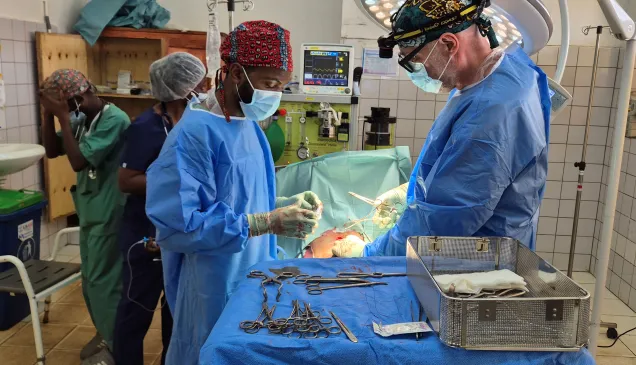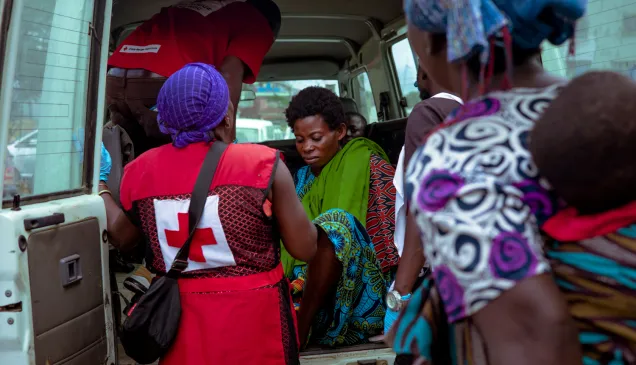A victim, veiled to protect her identity, testifies in court.
DRC rape trials reportage wins Humanitarian Visa d’Or photo prize
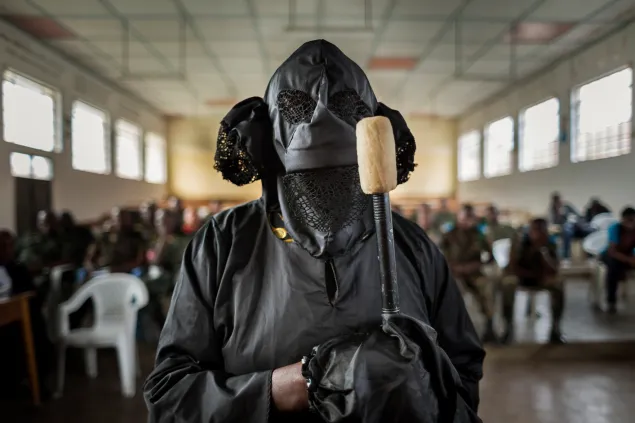
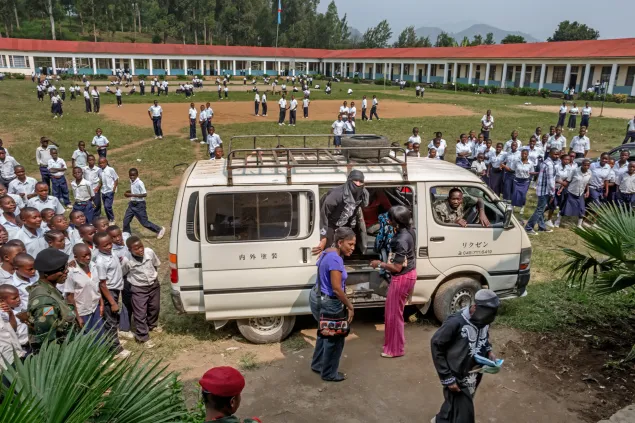
Students flock around a van bringing women to testify in a makeshift courtroom set up in the auditorium of a Catholic school in Minova. The victims could not afford the trip to Goma, more than 50 km away, so the court came to them.
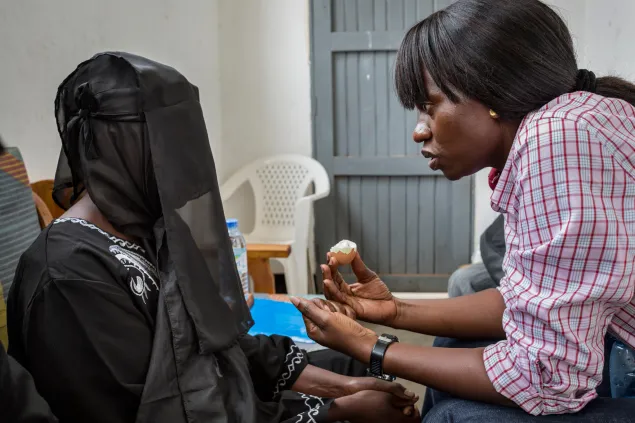
Many of the women still have symptoms of post-traumatic stress disorder. Here, a veiled woman about to testify receives counselling from a psychologist.
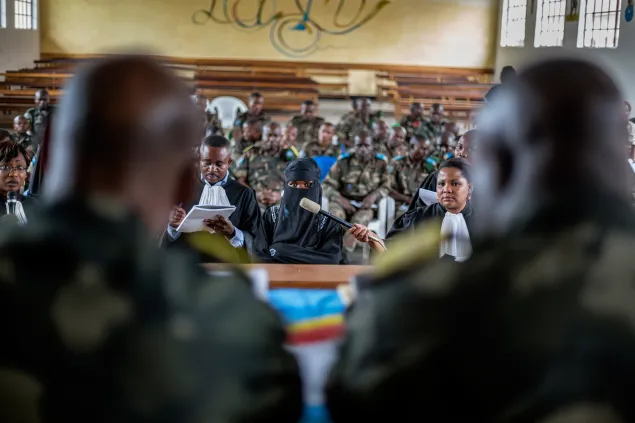
A victim – veiled to protect her identity – testifies before the closed military tribunal. A member of the prosecution team holds a microphone for her while a defence lawyer makes notes. The accused soldiers are seated at the rear.
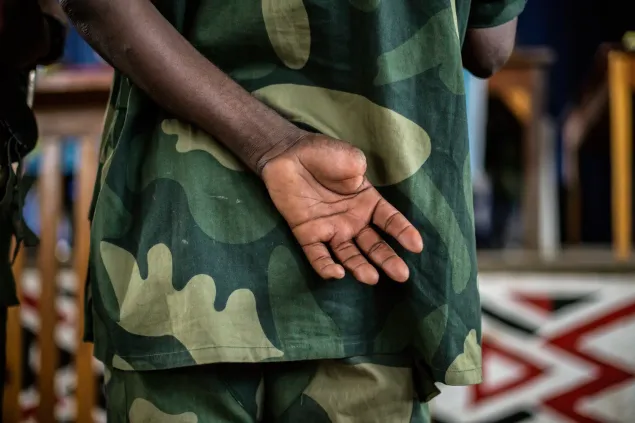
A soldier is questioned before the court.
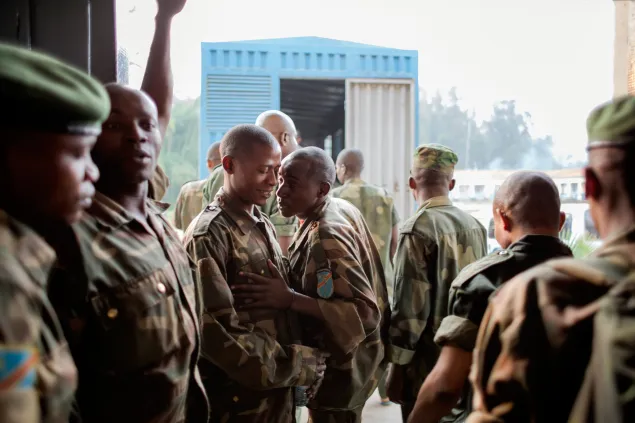
Some of the defendants prepare to travel back to custody at the end of the day.
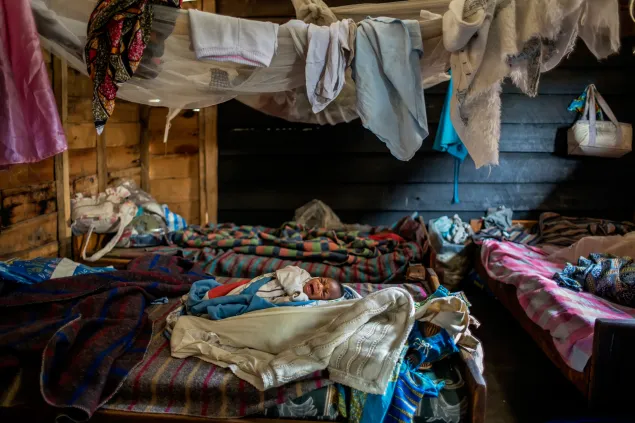
A two-week-old baby cries in the shelter for victims of sexual violence in the village of Buganga, 3 km south of Minova.
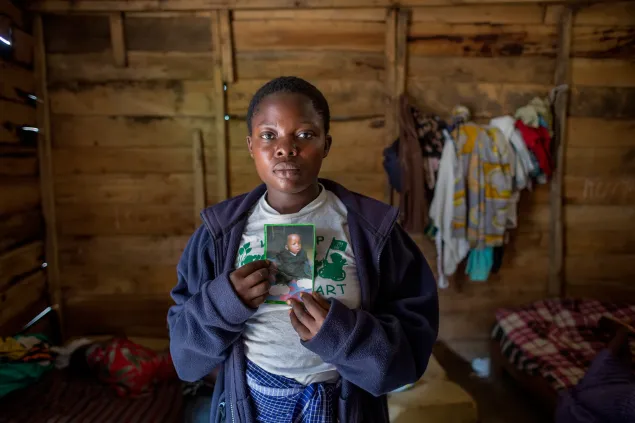
A mother holds a picture of her son. Soldiers abducted him in November 2012, when they attacked the shelter for rape survivors where she lived. A few days later she found him, very ill. He died a month later.
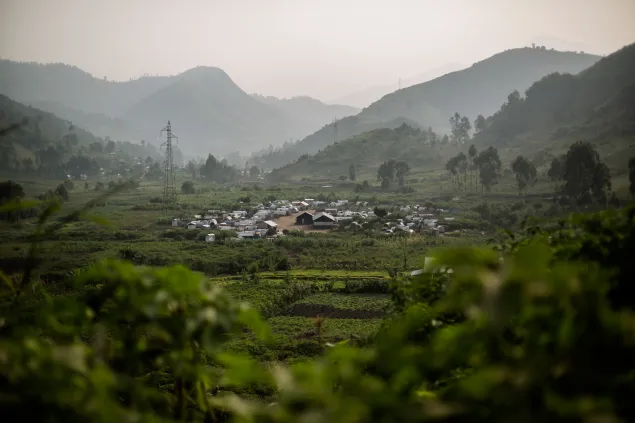
About 1.5 km south of Minova lies Mubimbi, a small camp for people displaced by the conflict that has plagued Congo for two decades. Some of the rape victims who testified at the trial in Minova were living here during the attacks.
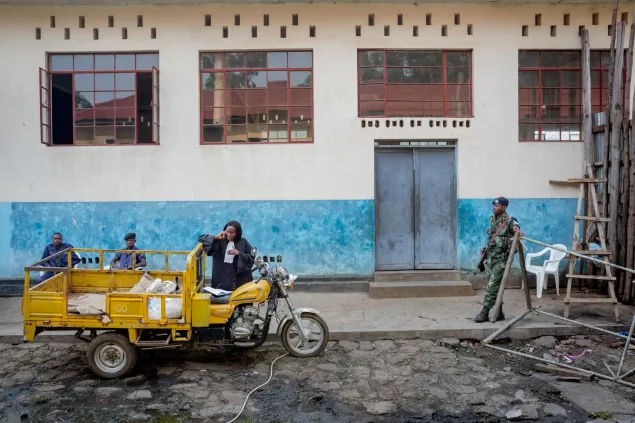
Amani Mireille Kahatwa takes a call behind the school auditorium. Her team of 10 Congolese prosecutors is employed and supported by the American Bar Association.
The "Minova rape trials" took place over eight days in a temporary court in South Kivu, Democratic Republic of the Congo. 39 soldiers accused of participating in the rape of around 1,000 Minova residents during November 2012 heard the testimonies of victims who for their own security wore disguises during the trial in February 2014.
In recognition of her sensitive and powerful depiction of the trial, on 19 June 2015 the jury unanimously awarded the ICRC's Humanitarian Visa d'Or to photojournalist Diana Zeyneb Alhindawi. The prize forms part of the annual Visa pour l'image festival, which takes place each September in Perpignan, France. The theme for this year's Humanitarian Visa d'Or was women in war.
Last year's winner of the Humanitarian Visa d'Or was William Daniels, for his coverage of the humanitarian crisis in the Central African Republic.

